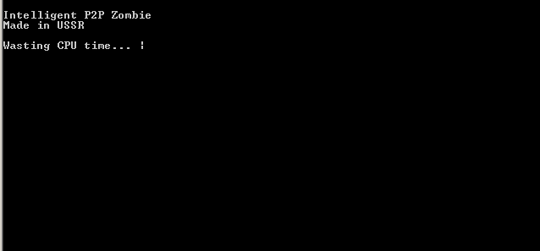BKDR_BIZOME.A
Windows 2000, XP, Server 2003


Threat Type: Backdoor
Destructiveness: No
Encrypted: No
In the wild: Yes
OVERVIEW
This backdoor may be dropped by other malware. It may be unknowingly downloaded by a user while visiting malicious websites.
TECHNICAL DETAILS
Arrival Details
This backdoor may be dropped by other malware.
It may be unknowingly downloaded by a user while visiting malicious websites.
Autostart Technique
This backdoor registers itself as a system service to ensure its automatic execution at every system startup by adding the following registry entries:
HKEY_LOCAL_MACHINE\SYSTEM\CurrentControlSet\
Services\IPZ
ImagePath = "{malware path and filename}" --service
Other System Modifications
This backdoor adds the following registry entries:
HKEY_LOCAL_MACHINE\SYSTEM\CurrentControlSet\
Services\SharedAccess\Parameters\
FirewallPolicy\StandardProfile\AuthorizedApplications\
List
{malware path and filename} = {malware path and filename}:*:Enabled:ipz
Backdoor Routine
This backdoor opens the following port(s) where it listens for remote commands:
- 310
Dropping Routine
This backdoor drops the following files:
- %Current%\\ipz-db.bin
- %Current%\log.xt
Other Details
Based on analysis of the codes, it has the following capabilities:
- It displays the following:
- It may be executed using command-line and may have the following parameters: /i - install itself as service /s - start service /r - remove service /l - log activities of the malware
- It performs ICMP requests that floods a target system by continuously sending PING requests to a series of IP addresses using port 4899.
It displays the following images:
SOLUTION
Step 1
For Windows XP and Windows Server 2003 users, before doing any scans, please make sure you disable System Restore to allow full scanning of your computer.
Step 2
Scan your computer with your Trend Micro product and note files detected as BKDR_BIZOME.A
Step 3
Restart in Safe Mode
Step 4
Delete this registry key
Important: Editing the Windows Registry incorrectly can lead to irreversible system malfunction. Please do this step only if you know how or you can ask assistance from your system administrator. Else, check this Microsoft article first before modifying your computer's registry.
- In HKEY_LOCAL_MACHINE\SYSTEM\CurrentControlSet\Services
- IPZ
- IPZ
Step 5
Delete this registry value
Important: Editing the Windows Registry incorrectly can lead to irreversible system malfunction. Please do this step only if you know how or you can ask assistance from your system administrator. Else, check this Microsoft article first before modifying your computer's registry.
- In HKEY_LOCAL_MACHINE\SYSTEM\CurrentControlSet\Services\SharedAccess\Parameters\FirewallPolicy\StandardProfile\AuthorizedApplications\List
- {malware path and filename}={malware path and filename}:*:Enabled:ipz
- {malware path and filename}={malware path and filename}:*:Enabled:ipz
Step 6
Search and delete this file
Step 7
Scan your computer with your Trend Micro product to delete files detected as BKDR_BIZOME.A. If the detected files have already been cleaned, deleted, or quarantined by your Trend Micro product, no further step is required. You may opt to simply delete the quarantined files. Please check this Knowledge Base page for more information.
Did this description help? Tell us how we did.



